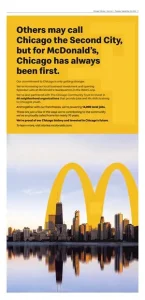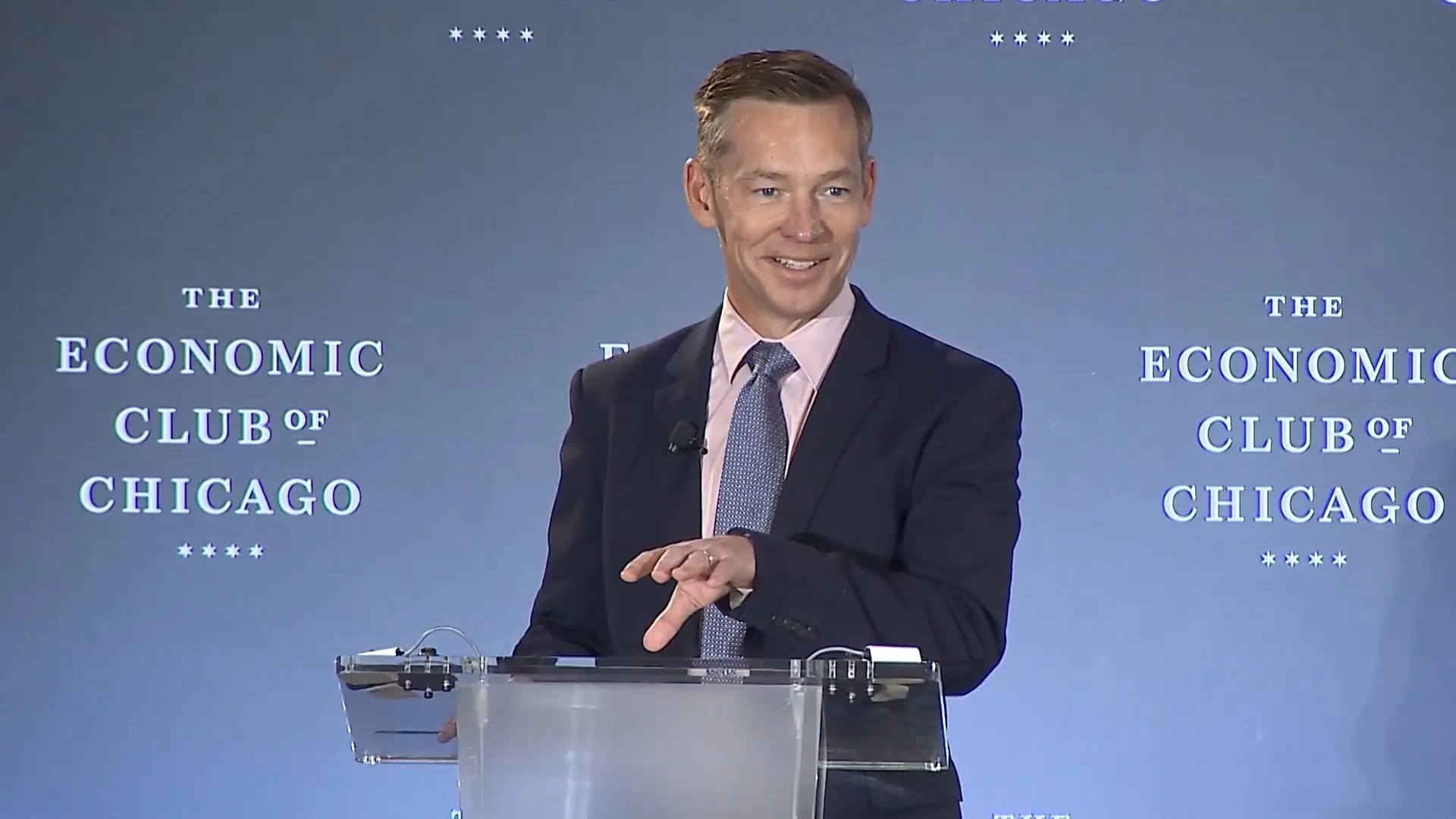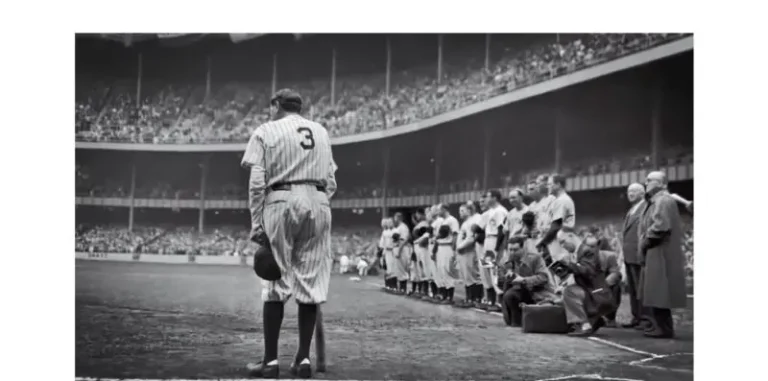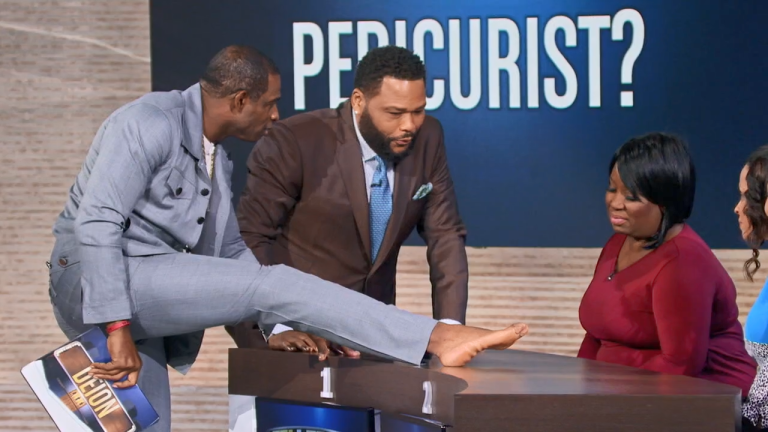How McDonald’s CEO Set the Stage for a Mayor’s Defeat
Chris Kempczinski’s speech on what ails Chicago voiced business leaders’ deep discontent with incumbent Lori Lightfoot
Chief executives of global companies don’t usually get involved in local politics, but CEO Chris Kempczinski of Chicago-based McDonald’s Corp. has shown there’s an exception: When a mayor’s approval rating is about 25%.
“While it may wound our civic pride to hear it, there is a general sense out there that our city is in crisis,” he said on Sept. 14, 2022, in a speech before The Economic Club of Chicago, an exclusive group of business leaders.
Kempczinski never mentioned Mayor Lori Lightfoot by name as he voiced widely felt concerns about crime, bemoaned City Hall’s frayed relationship with the business community and griped about taxes. He didn’t need to.
“His comments likely will serve as a blueprint for any pro-business mayoral candidate who has yet to emerge,” wrote the Chicago Tribune Editorial Board in praise of the speech.
Five months later, Lightfoot was on her way out, finishing third in a crowded field of nine candidates.
In response to a list of eight questions, a McDonald’s spokesperson declined comment, saying by email, “We have nothing more to share at this time.”
In some ways, Kempczinski’s speech was the kickoff of the Chicago mayoral election, likely strengthening opposition to the incumbent that was already brewing among the city’s corporate elite. It also offers a chance to review three points that CEOs should consider before jumping into local politics. But first, some background about politics in the Windy City, where Ragan Consulting Group is based.
Nearly four years ago, Lightfoot became the third Black, second woman and first openly gay person to become the city’s mayor. A former federal prosecutor and big law firm partner, she rode to an upset win in 2019 over outrage about political corruption. (Imagine that in Chicago!).
While worries about crime played a key role in Lightfoot’s defeat in the Feb. 28 non-partisan election, she was also hurt by perceptions that she failed to deliver on promises to reform government, increase transparency and change police tactics. Layered on top of all that was her combative personality. Liberal voters, the core of her support in 2019, abandoned her in this election.
Two candidates are fighting to succeed Lightfoot in what will likely be a ferocious runoff election on April 4. Paul Vallas, a former CEO of the Chicago Public Schools under Mayor Richard M. Daley who is receiving strong support from the business sector, garnered nearly 34% of the votes. Brandon Johnson, a county commissioner who is backed by the city’s powerful teachers union, where he is an organizer, collected nearly 22%. In a city where race plays a role in politics, Vallas is white and Johnson is Black.
The two candidates offer sharply different visions of how to run the nation’s third largest city, especially on crime. Vallas is campaigning on a law-and-order message, while Johnson promises to improve public safety by spending more on social services, mental health care, education and housing.
McDonald’s, with 2022 revenue of $23.22 billion, has a long history in the Chicago area, from its first restaurant in a suburb in 1955 to its headquarters move from the suburbs to the city in 2018. Kempczinski began his remarks by describing the economic impact if his company left.
“Two billion dollars a year is the economic contribution of having McDonald’s headquarters here,” he said, repeating the number.
“What if McDonald’s wasn’t here? It would be $2 billion that left the city overnight,” he said, snapping his fingers.
 The speech earned national media coverage. When reporters seized on Kempczinski’s implied threat to relocate the company’s headquarters, McDonald’s PR team clarified that the company did not intend to move. One week later, the company bought a full-page print ad in the Tribune, promising its continued commitment to the city, and posted it to its website.
The speech earned national media coverage. When reporters seized on Kempczinski’s implied threat to relocate the company’s headquarters, McDonald’s PR team clarified that the company did not intend to move. One week later, the company bought a full-page print ad in the Tribune, promising its continued commitment to the city, and posted it to its website.
At a time when consumers continue to want chief executives to be more engaged in social issues, the speech is a remarkable example. It also raises at least three key questions that CEOs should consider before plunging into local politics.
1. Can you win? “Don’t Make No Waves, Don’t Back No Losers,” was the title of a landmark 1975 book about Chicago politics. The principle still applies and not just to Chicago. Even with all of Lightfoot’s disadvantages, her defeat was hardly a sure thing when Kempczinski spoke out. Five months between his speech and the election is a long time in politics.
This doesn’t mean CEOs shouldn’t get involved in political issues they aren’t certain to affect. But the chance of a favorable outcome is a factor to weigh. Political issues are different from social issues, where taking a stand can resonate with employees and customers, especially when coupled with a plan to take action.
2. Who’s the audience? The members of the Economic Club enthusiastically received Kempczinski’s remarks.
In a sign of approval by many business executives, The Wall Street Journal Editorial Board thundered, “When residents no longer feel safe at a major restaurant chain and a CEO issues a public plea, social order is breaking down.”
But before stepping into the fray, CEOs must be mindful of how their stance will be received by other audiences. Just ask Disney, which didn’t anticipate the barrage unleashed by Gov. Ron DeSantis (R-Fla).
In Chicago, a white male CEO criticizing a Black female elected official popular among many African Americans can produce unintended consequences. In 2021, Kempczinski drew protests at McDonald’s headquarters after the publication of a text message to Lightfoot in which he blamed the parents for the shooting deaths of a Black child and a Latino teenage because they “failed” their children. He apologized and met with employees.
The company also has faced harsh criticism over alleged discrimination against Black franchisees.
Yet Kempczinski and McDonald’s suffered no backlash from his remarks.
3. Do you have your facts straight? In these circumstances, the CEO’s numbers must be bombproof.
Lightfoot fired back, of course, saying, “What would have been helpful is for the McDonald’s CEO to educate himself before he spoke.”
The city’s crime statistics, while high, are improving, the administration said. And a record number of companies are moving to the city or significantly expanding, contradicting Kempczinski’s claim that fewer companies are headquartered here. Taxes have changed little since McDonald’s moved to the city nearly five years ago.
Moreover, reports by Crain’s Chicago Business comparing Chicago with other cities on crime and business climate offer a more moderate picture of the city.
Yet Kempczinski’s message was so strong that any questions about the accuracy of his claims received scant attention.
CEOs must pick their issues wisely. Kempczinski’s speech was not without risk, but likely had its intended effect. With the run-off less than a month away, will the McDonald’s chief executive offer another Chicago assessment?
Tom Corfman is a senior consultant with Ragan Consulting Group, which helps companies establish executive thought leadership programs.
Contact our client team to learn more about how we can help you with your communications. Follow RCG on LinkedIn and subscribe to our weekly newsletter here.







